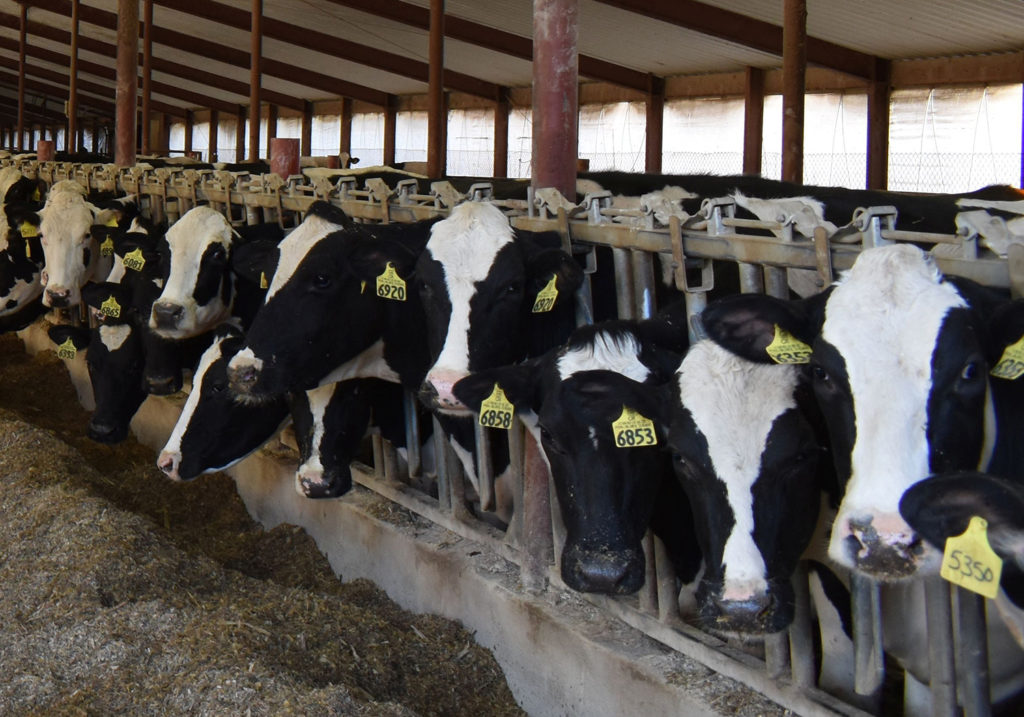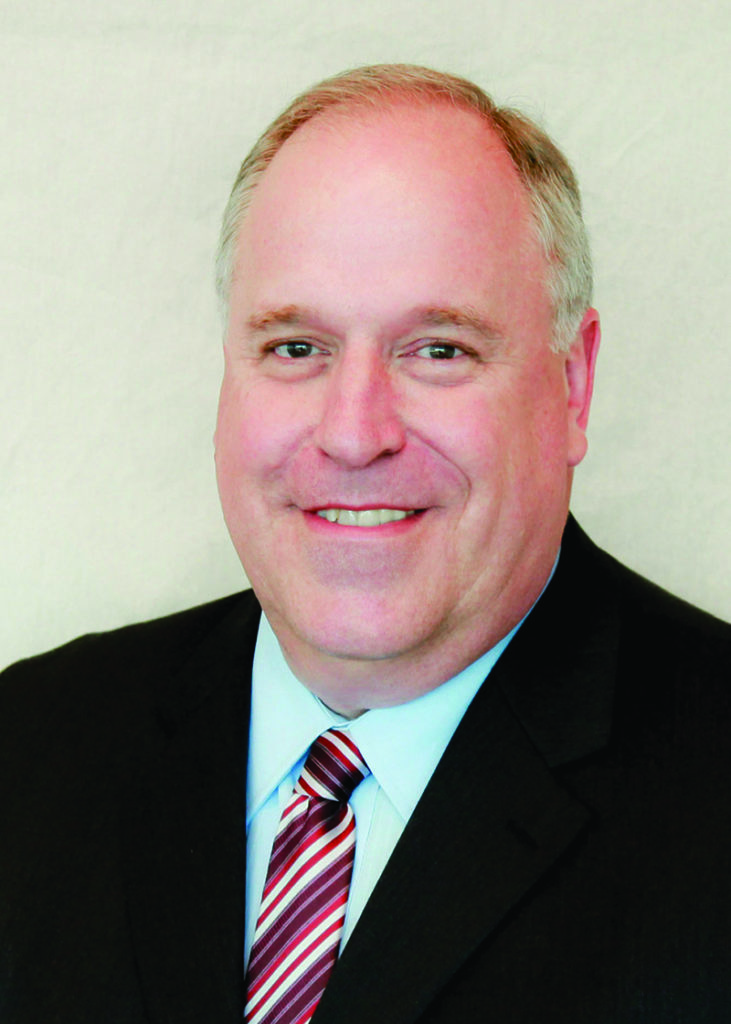Stephen Freese is president and CEO of the Wisconsin Electric Cooperative Association. Farming and food processing are major economic drivers in Wisconsin, and COVID-19 mitigation measures have had widespread impacts on those industries and the electric co-ops that serve them.

I’m farm people. My family has been farming in Wisconsin since 1874 and was involved in dairy operations for over a century.
My dad kept it going into the 1970s and was still doing all of the milking by hand. We had a cream separator, but that was the only electric machinery we used in any part of the milking process.
You don’t just read a book and say, “I’m going to become a dairy farmer tomorrow,” because you’re going to see how much work it takes, and you’re not going to want to work that hard.
Regardless of size, 95% of Wisconsin’s dairy farms are family owned. Most Wisconsin farms have multiple family members running them and, in some cases, multiple generations.
One of my neighbors has one of the largest dairies in Grant County. With all the cousins working together, they do a very successful job. It’s a very modern, computer-driven farm, but it’s successful as a family-run operation because all 16 cousins are still working on the farm together.
COVID-19 pandemic shutdowns have been particularly bad for family farmers. Their losses began early as states closed schools and restaurants, then they got worse when processors saw sales stall and inventories stack up, which literally caused prices to collapse.
You had so much fluid milk coming on the market that it was causing the price to go down. We have members of boards of directors of electric co-ops who’ve been dumping milk because there’s too much supply, and they’ve been asked to reduce their milk production by 10%. So that obviously impacts the bottom line of the farm, and you have no way of recovering from real-time losses in sales or production.
Widespread Impact

The Wisconsin dairy industry generates $45.6 billion annually, and the state is home to 23% of the dairy farms in the United States. About 57% of those dairy farms are getting their electricity from electric cooperatives, so the declines have naturally had an impact on our members’ power sales.
Every dairy barn that you’re not running the milk cooler and milking machine in is a loss of electric load. And co-op-served communities are feeling it across their local economies. When the farmer isn’t spending the dollars in town, all the local businesses take a hit.
We were already seeing a substantial increase in farm foreclosures because the commodity prices were not in the realm of allowing them to make a living any more. In 2019, we had 818 dairy farms close. When you have such a large sector of your economy based on family farms, you can’t help but feel the impact of this.
Helping the Members
Every co-op director and manager knows how much this is hurting their members. Between the layoffs and the disruptions caused by pandemic shutdowns and the declines in commodity prices, thousands of Wisconsin families are feeling the strain. So all the members of the Wisconsin Electric Cooperative Association have been looking for ways we can help our members get through this.
Many of our 24 distribution co-ops have had to cancel annual meetings and other member outreach events because people have been social distancing, so we looked for ways to provide some meaningful help. We saw an opportunity to work with the Dairy Farmers of Wisconsin, the state’s milk marketing board, on a project that would put some of Wisconsin’s surplus dairy production to use and help co-op families through these difficult times.
The majority of our co-ops are supporting a coupon program during June, National Dairy Month, that will provide co-op members with a gallon of milk. This is a way to repurpose the funds normally used for annual meeting gifts, entertainment and meals to help families meet their immediate needs. We have a retailer with outlets covering most of the state that has agreed to help us with the coupon program.
Families are having a hard time because they’ve been laid off, they’ve been forced to work from home, or they’ve got reduced hours. A gallon of milk will help them stretch their grocery dollars, and 120,000 gallons of milk will make a difference in our state’s economy and help take some of that surplus milk off the market, so it helps dairy farmers too.
Some of our other co-ops are pursuing their own projects in June, to coincide with National Dairy Month. They include Dairyland Power Cooperative, the state’s generation and transmission cooperative, providing 2,500 gallons of milk to food pantries in their service area to help expand the milk giveaway promotion. Other distribution co-ops are expanding their academic scholarship programs, helping local food pantries or sponsoring other community events in June to support dairy farmers and provide opportunities and assistance to their members.
Lasting Impressions
All of our co-ops have built reputations as community-based organizations that help our members confront and solve challenges, and that’s exactly what they’ve done during COVID-19. We all want to try and get back to a normal way of life, but we also know that won’t happen all at once.
Members will remember that their electric co-ops stepped up and helped their friends and neighbors. As part of their communities, it’s a great feeling knowing that we’re doing something and not just sitting on the sidelines.
Derrill Holly is a staff writer at NRECA.
Related Content:
Read More on the electric co-op response to the COVID-19 Pandemic
First Person: Ohio Lineworker Adjusts to COVID-19 Changes
First Person: ‘You Feel Like You’re on an Island’ Says Kentucky Co-op Rep
First Person: ‘You Can’t Social Distance on a Bus,’ Says Youth Tour Leader